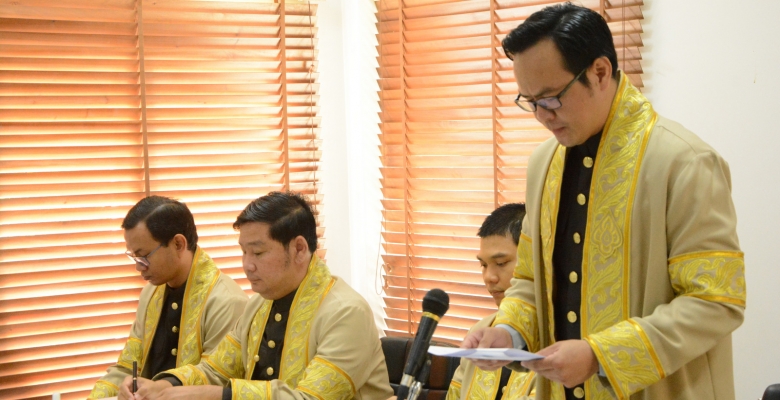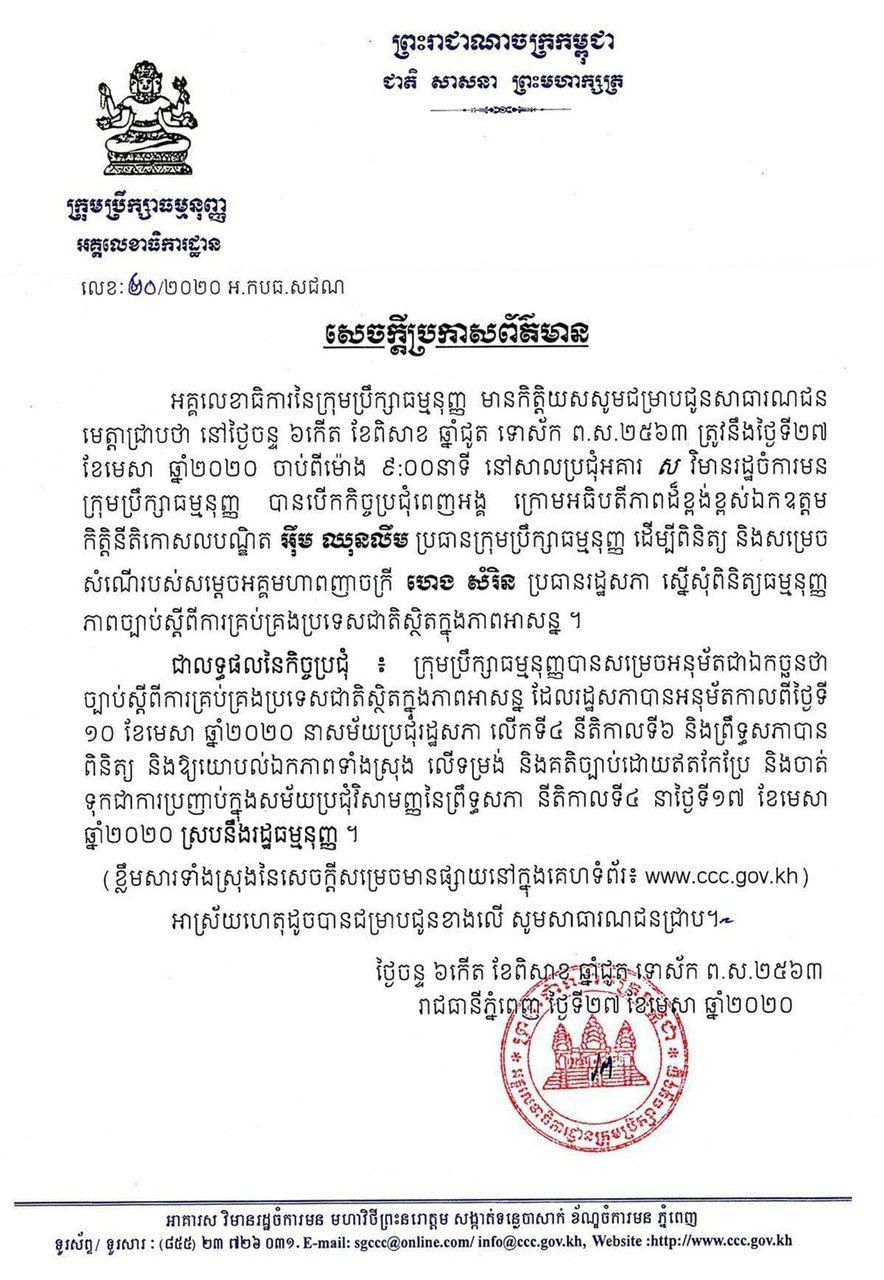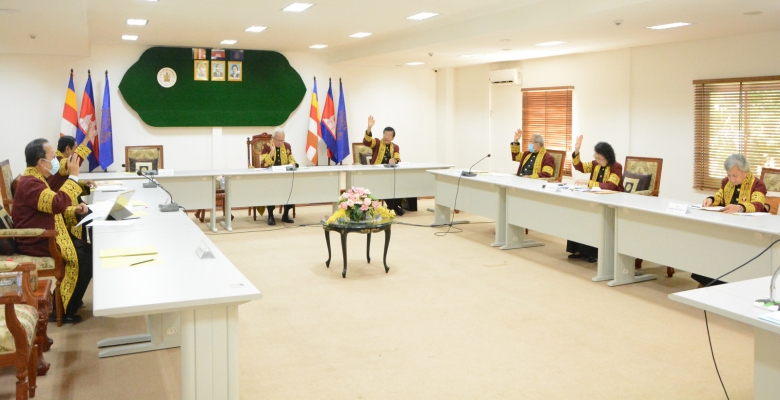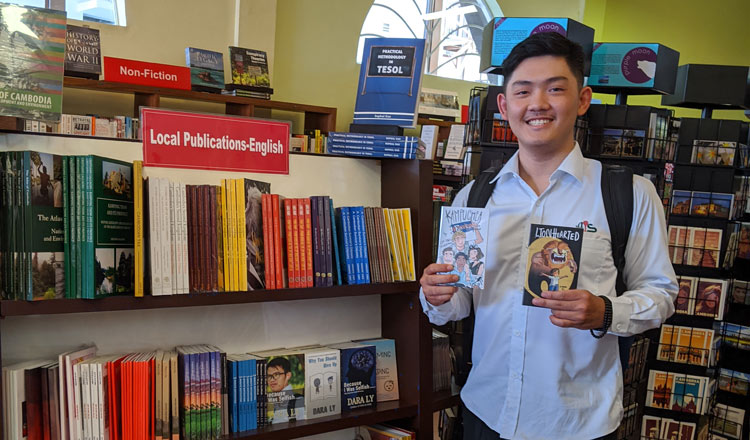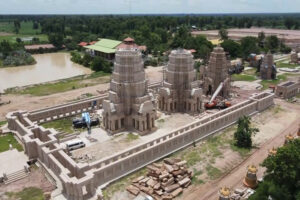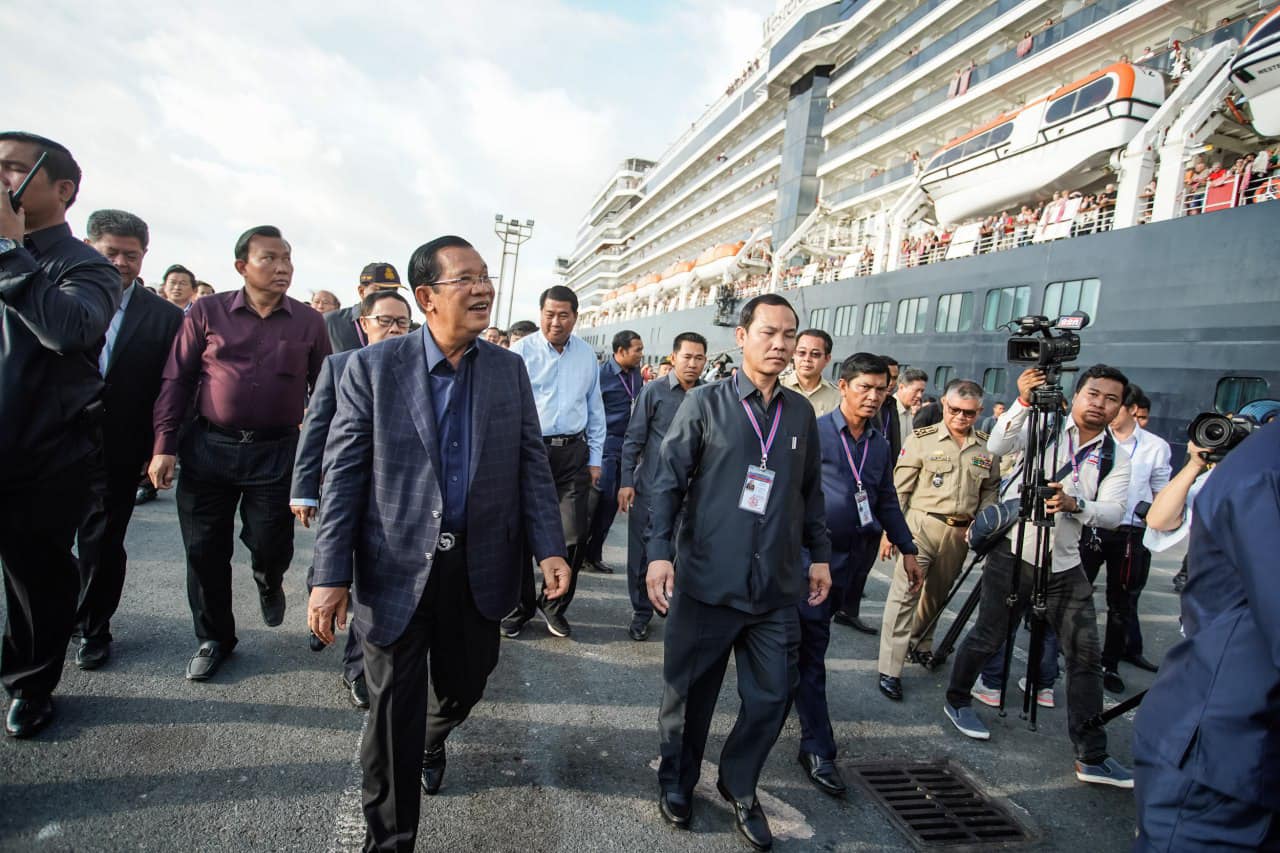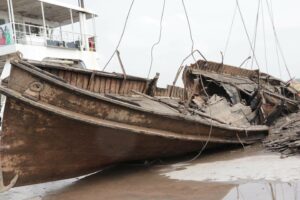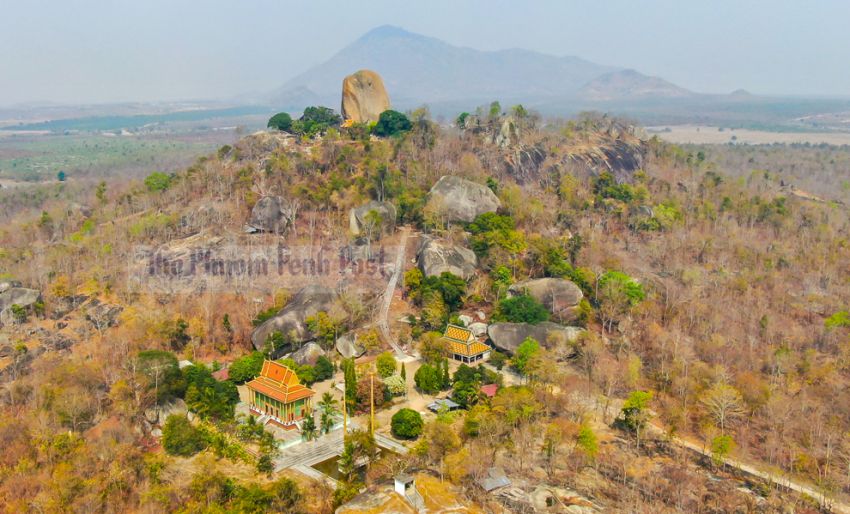CCC unanimously okays emergency draft law
The Constitutional Council of Cambodia yesterday unanimously approved the draft law on “The State of Emergency” which has now passed the final stage of vetting before being signed into law.
The draft was forwarded to the Royal Palace for King Norodom Sihamoni’s signature. However, a palace senior official said yesterday, the King who is away in China, would not be able to return to the Kingdom anytime soon. This leaves the draft in the hands of acting Head of State Say Chhum.
The decision to approve the law was made yesterday during the CCC’s plenary session led by council president Im Chhun Lim after the draft had been fast-tracked for approval and unanimously adopted by the National Assembly and Senate over the past weeks.
According to a CCC Secretarial General statement released after the session, the Council fully agreed with the draft law, which was considered as “urgent”, without making any changes.
“[CCC] understands all five chapters and 12 articles of the Law on the Management of the Nation in the State of Emergency does not go against the Constitution,” the statement said, noting the decision is deemed final and cannot be appealed.
CCC secretary-general Taing Ratana said yesterday all members agreed in favor of the “State of Emergency” draft law.
“The Constitutional Council of Cambodia unanimously approved the State of the Emergency draft law. They found it conforms with the Constitution,” Mr Ratana said.
He said the CCC yesterday also informed the Council of Ministers, National Assembly, and Senate about the passing of the draft law.
King Norodom Sihamoni and Queen Mother Norodom Monineath Sihanouk departed the Kingdom on April 1 for medical check-ups and treatment in Beijing. In his letter to the nation, the King said in his absence, Senate President Say Chhum will be acting Head of State.
However, Oum Daravuth, an adviser to the Queen Mother’s secretariat said yesterday the King and Queen Mother would not be able to return to the Kingdom in the upcoming week. He said the King is expected to miss out on signing the State of Emergency law.
“His Majesty, the King, is still undergoing medical check-up,” he said. He added the King has not set a return date to the Kingdom.
“Hence, the acting Head of State Say Chhum would sign the law instead of the King,” he said, adding the trip of the King to China was made at the same time as the virus outbreak which caused some difficulties.
“His Majesty flew to China on April 1 and was quarantined for 14 days upon the arrival. This delayed the start of his medical check-up,” he added. “He could stay there for at least a month and a half.”
Sok Eysan, a senator and CPP spokesman, said yesterday the law would take effect immediately after Mr. Chhum signs it.
“The government has considered all factors clearly before drafting the law,” Mr. Eysan said. “This law is not aimed to protect the power of the CPP government. It would instead help maintain national security and protect the lives and health of the people. It will also help with democracy and the rule of law in Cambodia.”
Asked why the government was interested in having the law now, Mr. Eysan said the COVID-19 pandemic has prompted its drafting.
“Some highly-developed countries which have the best healthcare systems are also facing challenges in responding to COVID-19,” he said. “They have thousands of new infections every day.”
Mr. Eysan said to protect the country during this pandemic, the government should have the right to impose some measures, including prohibition or restriction of freedom of movement and the gathering of people in large numbers.
“It does not mean this law applies only during the COVID-19 outbreak. We will reserve it for other serious situations in the future,” he said. “From now on, if [the government] needs to put the country in a state of emergency, they only need a royal decree to declare it.”
Mr. Eysan said this law also applies to “out of control” situations, such as an attempt to topple the legitimate government, which was selected through a free and fair election.
Under the new law, the government may delegate authority to the armed forces to ensure implementation once a declaration of emergency is made. The question remains as to who can declare a state of emergency when the King is out of the country.
Article 22 of the Constitution states: “When the nation faces danger, the King shall proclaim to the people, putting the country in a state of emergency after agreement with the Prime Minister and the President of the National Assembly and President of the Senate.”
However, it does not cover a situation in which the King is out of the country.
However, Prime Minister Hun Sen has said the declaration of a state of emergency may not be necessary as the COVID-19 situation in the Kingdom is under control, saying its likelihood stands at “0.1 percent”.
As of yesterday, the Kingdom continued to show a remarkable recovery rate of virus victims with another two recoveries, bringing the total to 119 of a total of 122 cases.
This means there are only three more patients still being treated for the disease which has so far spared Cambodia from any fatalities.
Justice Ministry spokesman Chin Malin said recently there are now about 70 countries in the world, including ASEAN nations, which are implementing a state of emergency to tackle the virus.
He said critics have misunderstood the law as they failed to conduct precise studies about it.
UN High Commissioner for Human Rights Michelle Bachelet yesterday called on the governments, which faces the formidable challenge of protecting people from the virus, to ensure human rights are not violated under the guise of exceptional or emergency measures.
“Emergency powers should not be a weapon government can wield to quash dissent, control the population and even perpetuate their time in power,” she said. “They should be used to cope effectively with the pandemic – nothing more, nothing less.”
Ms. Bachelet said the states can restrict some rights to protect public health under human rights law but they need to be limited in duration. Key safeguards against excesses must be put in place as well. Khmer Times
